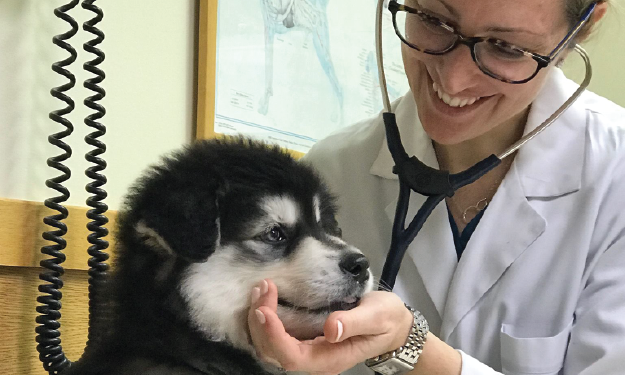What is DHPP Vaccine for Dogs? Exploring Canine Vaccination

Vaccines are an important part of your dog’s total wellness program. They provide essential protection against severe diseases that were once common causes of illness and death. Routine vaccines are highly effective, so the risk of properly vaccinated animals contracting these diseases is very low.
Maternal immunity lasts between 6 and 12 weeks. In order to be effective, vaccinations are given to puppies at 6-8 weeks, 12 weeks, and 16 weeks of age.
While the risks associated with vaccinations are low, no veterinarian wants to cause a problem in a healthy animal with a preventative treatment. For this reason, we choose vaccinations based upon the lifestyle and risk factors of the pet. We will discuss the various options with you. Multiple diseases are sometimes combined into one vaccine to reduce stress and side effects for your puppy.
Vaccines for Dogs
DHPP Vaccine
The DHPP vaccine (commonly referred to as the distemper vaccine) covers four major illnesses in dogs: distemper, adenovirus (hepatitis), parainfluenza, and parvovirus.
- Canine distemper: a severe viral infection of the respiratory, digestive and neurologic system, usually resulting in death.
- Hepatitis: a viral infection of the liver.
- Parainfluenza: a viral infection of the respiratory system, part of the complex of diseases commonly known as “kennel cough”.
- Parvovirus: A viral infection of the gastrointestinal system causing severe diarrhea and vomiting. Canine parvovirus primarily affects puppies, highly contagious, potentially fatal.
Leptospirosis Vaccine
Leptospirosis is a bacterial infection that primarily affects the liver and kidneys. This vaccination is considered an important one in the New England area, which has a relatively high incidence of this disease. It is passed via water sources (ponds, lakes, wetlands, and rainwater) from wildlife and other dogs.
Lyme Vaccine
Lyme disease is bacterial infection passed to dogs via tick bite. This disease has an extremely high incidence in Massachusetts and is considered an essential vaccination in New England.
Rabies Vaccine
Rabies is fatal viral infection of the neurologic system which is communicable to all mammals (including humans).
Kennel Cough (Bordetella & Parainfluenza) Vaccine
Kennel Cough is combination of viral and bacterial agents causing a cough which can vary from mild and self-limiting to a severe pneumonia. The kennel cough vaccine is important for dogs who spend time with other dogs: at the dog park, doggy daycare, boarding, training classes, or going to the groomer.
Canine Influenza Vaccine
Canine Influenza is a new or “emerging” disease, canine influenza is a distinct strain from human influenza and is therefore not transmissible to people. It causes similar symptoms (cough, fever, runny nose) to kennel cough and human influenza. The vaccine should be considered in dogs that will be boarded, groomed, or exposed to large numbers of other dogs.
Your veterinarian can recommend the best frequency of booster shots for your dog based on his or her lifestyle. Every year, or every three years is standard for core vaccinations for most dogs.